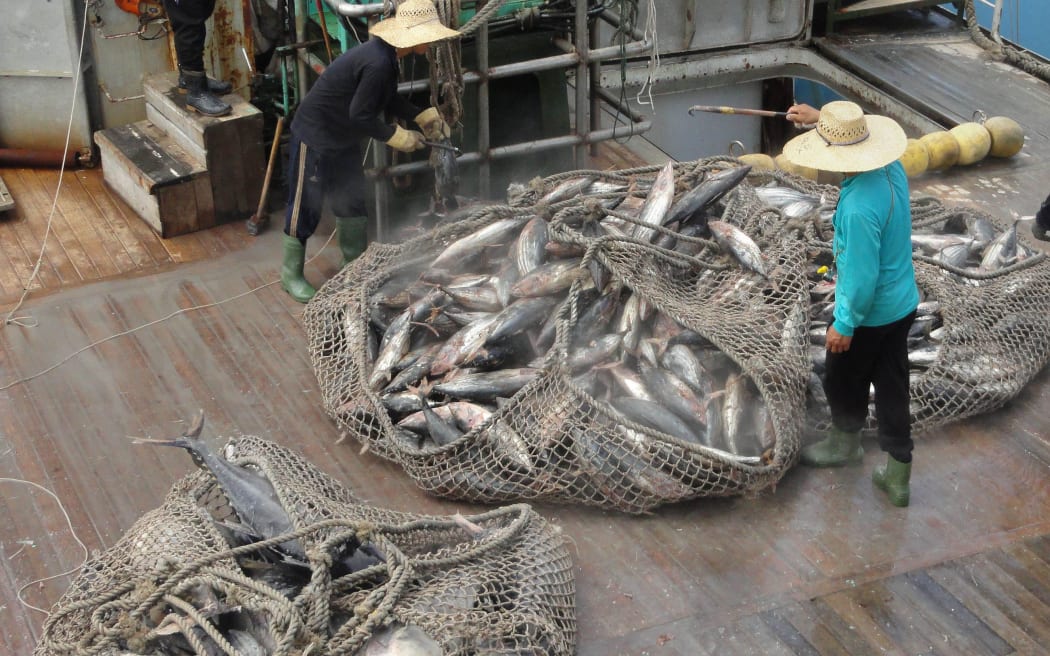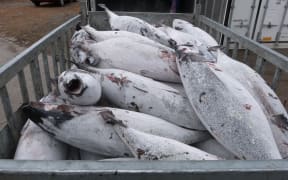The WWF says management of Pacific fisheries will increasingly demand improved oversight of fishing and greater transparency in the supply chain.

Fishermen on a purse seine vessel in the Pacific. Photo: AFP
The 40 member countries of the Western and Central Pacific Fishery Commission will hold their annual meeting next week in Bali where the WWF plans to push the need for measures to ensure the effectiveness and safety of fisheries observers onboard vessels.
The WWF's Western Central Pacific Ocean Tuna Programme Manager Bubba Cook says new technologies will increasingly play a part in future fisheries management which still has many gaps.
He says that depending on which port they enter, foreign fishing vessels can go in and out of Pacific jurisdictions with minimal oversight.
"We've just had a terrorist attack in Paris, and it could easily happen as a result of one of these vessels pulling into a port loaded with explosives. If we can't track illegal fishing or human trafficking and that kind of thing, how could we possibly expect to be able to track and monitor terrorism aspects on board these vessels?"
Mr Cook says there's a critical need to address such gaps, arguing that making vessel operations more transparent can address the range of problems like illegal fishing, drug trafficking, human trans-shipment and slavery.
Concern about fisheries observers who go missing
Ahead of next week's annual Tuna Commission summit, the WWF has also called for measures to ensure the safety of fisheries observers onboard fishing vessels.
The call comes after a tuna trans-shipment observer with the Inter-American Tropical Tuna Commission, Keith Davis, disappeared in September working on board a Japanese vessel flagged to Panama in the Eastern Pacific ocean.
Mr Cook says US authorities have investigated, but the observer's fate remains a mystery.
"The really heartbreaking part is had he not been an American citizen there probably wouldn't have been the level of profile, and that's exemplified by the fact that within the last five years there's been at least three observers from Papua New Guinea who have gone missing. They try to keep those stories, you know, in-house because they know that no one will want to buy tuna that people die to produce."
Other WWF demands for the upcoming WCPFC meeting include:
- Decision on additional or alternative measures to take, such as harvest control measures and purse seine quotas as well as reductions in purse seine and longline fishing capacity to achieve bigeye tuna stock management objectives;
- Determination of whether harvest controls for shark and billfish stocks of conservation concern are adequate and, if not, take appropriate action;
- Agreement on a process to assess penalties for non-compliance of monitoring and control measures and other obligations under the convention, and ensure full transparency in WCPFC's Compliance Monitoring Scheme processes.


